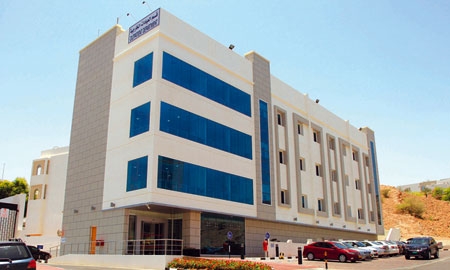As His Majesty Sultan Qaboos bin Said began his reign in 1970, Omani healthcare facilities were barely existent. In response, he made the development of a world-class healthcare system one of his top priorities. Investment of oil wealth made this possible and more than 40 years on, Oman can boast one of the best healthcare systems in the world.
In the World Health Report 2000, which included an evaluation of the world’s health systems, Oman came in eighth position in the overall global ranking. The UN Human Development Report has put the sultanate at the top of 135 countries that have made the greatest progress in recent decades in public health.
The remarkable progress made since the beginning of the Omani Renaissance is reflected in vital health statistics: life expectancy at birth has risen from around 57 years in 1980 to 72.4 years in 2011; the infant mortality rate has been reduced from 116 (per 1,000 births) in 1970 to 9.5 in 2011.
“The improvements in some measures of the healthcare system have been quite phenomenal over the last 20 to 35 years,” said Nigel Weale, former Director of Muscat Private Hospital (MPH), in an interview last year.
Economic growth on the back of oil wealth has made this progress possible, but growth itself brings with it other challenges. A growing and longer-living population coupled with the proliferation of lifestyle-related diseases – such as obesity, heart disease and diabetes – mean the public healthcare system and public investment cannot sustain a high level of service alone.
A huge level of private investment will also be required, as well as a greater number of private healthcare services. While the demand for private healthcare increases as the population becomes more affluent, the value of the healthcare industry is set to rise from $1.3 billion in 2012 to $2 billion in 2015.
“The government is actively looking to encourage and work with the private sector, not just to fill the gaps, but to provide the capacity that’s being required. As the population develops, there is an increasing demand that both the private and the government sector are going to have to keep up with,” said Mr Weale.
Expenditure by the Ministry of Health is expected to rise from $3.53 billion in its seventh five-year plan (2006-10) to $6.47 billion during its eighth five-year plan (2011-15), as large-scale projects such as the Sultan Qaboos University Hospital and International Medical Cities – costing a total of $3 billion – come on stream in the next two to three years.
“Healthcare is a sector we are very interested in. There is a very ambitious programme developing the healthcare sector here which involves building, training and every aspect,” says the British Ambassador to Oman, Jamie Bowden.
Muscat Private Hospital, a state-of-the-art facility in the Muscat neighbourhood of Bausher, was the first large private hospital in Oman when it opened in 2000 and became the first hospital in the sultanate to receive accreditation from Joint Commission International (JCI).
The hospital management is expecting much more competition in the coming years as more and more private healthcare institutions are established to feed the growing market.
“This is going to be quite a competitive market over the next few years and we need to accept that, react to that, but in a positive way,” said Mr Weale. “It will keep all of us on our toes. We are confident that we will stay ahead of the opposition competition.
“We have invested heavily in technology, so we have tended to look at making sure that we are ahead of the rest of the private market,” he commented, adding that there are also plans to increase bed capacity from 72 to 200 over the next three to five years.
The management at MPH is also actively committed to assisting the public healthcare system and meets regularly with the Ministry of Health. It has offered to share its radiology, diagnostics and operation services in a bid to cut long waiting lists at public hospitals.
0 COMMENTS